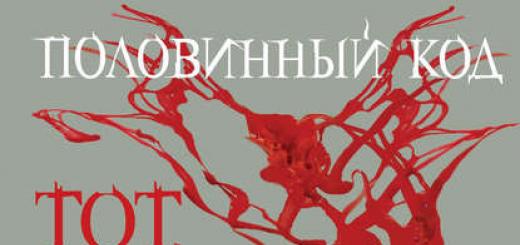| Characteristics | ||
|---|---|---|
| foundation type | monolithic reinforced concrete slab | 22.3 m3 |
| Floor type | monolithic reinforced concrete | |
| roof type | shingles | 154.5 m2 |
| Exterior finish | front brick, decorative plaster | 109.0/13.2 m2 |
| Plinth exterior finish | facing stone | |
| Roof | roof structure | |
| Exterior wall type | aerated concrete blocks - 300 mm | 35.8 m3 |
| Overall dimensions of the house | without porches | 9.6x10.0 m |
| house height | from the floor level of the first floor | 7.33 m |
| 1st floor height | floor to ceiling | 2.75 m |
| 2nd floor height | floor to ceiling | 2.75 m |
| Mansard slope height | 1.1 m | |
| Type of interior walls | brick / aerated concrete | 1.1/5.36 m3 |
| Number of floors | 2 | |
| The presence of an attic floor | ||
You dream of your home, that it would not be big, but with all the amenities, so that it would be attractive and modern. Take a look at this project, maybe you will like it. So Littel cozy house- a miniature of a large, comfortable mansion. All components are available: bay windows that form the look of the house and a spacious veranda, and a living room on the first floor, and a large bright bathroom on the second. Only all this is miniature - but quite sufficient for a comfortable life of a family of 3-4 people. In accordance with the design, the outer walls can be built from one material - 300 mm aerated concrete blocks. So this moment gives us the right to put this cottage in the category of "projects of aerated concrete houses."
The main entrance to the house is made by two arched openings and adjacent steps with railings. Finishing of the basement - facing stone, roofing of the mansard roof - bituminous tiles. The entrance to the hallway of the house goes through a small vestibule. In the hallway there was a place for a small dressing room and a bathroom. On the ground floor there is a living room, a kitchen-dining room, a bedroom and a shower room. The living room and dining room are beautifully lit by bay windows, and the fireplace gives additional comfort to the living room. Access to the covered veranda leads from the kitchen. The boiler room is not included in the project. Whether to install an electric boiler in the kitchen or make underfloor heating is up to the owners of the house to decide. The project offers two options for planning the second floor with one and two bedrooms. The second floor is attic, it is almost completely hidden under the roof, which inevitably leads to the appearance of skylights. These windows illuminate two bedrooms, a bathroom and a staircase in a small hall. This ready-made project is a good option for inexpensive, affordable, but at the same time sufficient comfortable suburban housing for a small family. It should be recalled that the project takes into account a three-dimensional view of the interior (the so-called Virtual Walk) and a mirror image of the structure of the house with a floor plan. According to the same principle, a project of a bathhouse with a studio in the attic was made - project 223C.
If, for example, some detail in this cottage did not suit you, and you want to find a variation on project 109A or a completely unique project, feel free to look at the contents of our catalog - there you will find a variety of house designs and be sure to make your choice!
Preview:
This lesson is held on the eve of studying the work of A.P. Chekhov so that no additional factors affect the achievement of the ultimate goal stated in the topic, such as: biographical data, features of the author's worldview, the originality of his work, that is, consideration of the story is immanent and directly depends on the skill of linguistic text analysis, which is the basis of research technology. The main task is to prove that the linguistic analysis of the text is the most objective way to identify the author's position, and therefore the formation of this skill continues in the lesson. In addition, acting as researchers, students develop general intellectual skills.
Lesson objectives:
Educational: through linguistic analysis of the text, try to identify the author's attitude to the heroine of the story.
Developing:
1. Development of the skill of linguistic analysis of the text as a universal means of identifying the author's position.
2. Development cognitive activity and independence, coherent speech of students.
Educational:
1. Formation of an unbiased attitude towards a person, criteria for assessing a person.
2. Raising interest in the study of the subject.
Lesson type: a heuristic conversation structured as a study of a literary text.
Equipment: handout for character speech analysis, Explanatory Dictionary of the Russian Language, ed. S.I. Ozhegova and N.Yu. Shvedova
I. Setting the goal of the lesson and motivation learning activities students.
Teacher. Placing A.P. Chekhov’s story “Darling” in his journal “Reading Circle”, L.N. Tolstoy writes: “We can do without women doctors, telegraph operators, lawyers, scientists, writers, but without mothers, helpers, girlfriends, comforters, loving in a man all the best that is in him ... without such women it would be bad to live in the world. In the same 1899, another Russian writer A.M. Gorky spoke differently about Chekhov’s heroine: “The author’s mind with cruel clarity illuminates cramped and dirty houses, in which small, miserable people suffocate from boredom and laziness, filling their houses with meaningless, half-asleep bustle. Here anxiously, like a gray mouse, Darling scurries - a sweet, meek woman who knows how to love so slavishly, so much. You can hit her on the cheek, and she won’t even dare to moan loudly - a meek slave.
a genius of the 19th century, saw in Dushechka the ideal of a woman, the other - the "petrel of the revolution" - considers her a miserable slave.
And what is your impression?
Student responses.
Teacher. A.P. Chekhov himself said that the writer is not a judge, but only an impartial witness to life. But this does not mean that he does not have his own point of view: after all, if he undertakes to portray something, it means that this something caused him certain thoughts.
Work with text
Today in the lesson we will try to understand how Chekhov treated his heroine, and we will do this using the technology of linguistic text analysis, since language is always a way of expressing the author's thought. And let us turn to only two components of the story - the speech of the characters and their portrait characteristics. Let's start with the first sentence of the story.
Researchers hear dissonance in it. What is it? What words of the phrase are opposed?
Students "Olenka" - the childishness of the heroine, and "thinking" is not a child's occupation
Determine by explanatory dictionary Ozhegova lex. the meaning of the word "think".
Let's correlate this meaning with the next phrase of the story. What is the content of her thoughts?
Students “it will soon be evening” - and the flies will not pester.
- In what vein, from the very beginning of the story, does Chekhov present his heroine? Students Ironically, reduced. thoughtfulness turns into "pseudo-thoughtfulness", i.e. the complete absence of real reflections in the mind of the heroine.
Teacher But let's not rush to conclusions, because everything is known in comparison, especially since the author introduces a new character. This is Kukin, entrepreneur and owner of the Tivoli Pleasure Garden.
Across lexical meaning words "entrepreneur", "pleasure garden" characterize this hero.
Students A business man who earns money by entertaining the public.
Teacher And so he spoke ... (Reading Kukin's speech student)
What does this speech and the remarks with which the author accompanies it tell us about the hero?
Students Speech is very emotional, pompous, this is evidenced by lexical repetitions, syntactic parallelism, an abundance of emotionally expressive vocabulary. Lots of speech rhetorical questions, exclamations, sentences are built on the principle of gradation. The author's remarks “spread his hands”, spoke “with despair”, spoke with hysterical laughter” reflect the extreme intensity of the passions tearing apart Kukin’s soul. What are these passions, what caused his despair? Kukin's concern for the public, the desire to appear before Olenka as a kind of ascetic in the field of art are deceptive. It is clear that the main phrase for him is terrible losses every day. This is what makes him curse the public and the weather, and not at all concern for high art, especially since the operettas, extravaganzas that Kukin puts on are the vulgarity in which he accuses the townsfolk. The clichéd nature of Kukin's speech, her feigned passion, false pathos make one think about whether the hero plays some role and what? The answer is simple - his role - the hero of a melodrama - is precisely the style of his speech, and the goal is simple - to attract Olenka's attention. It turns out that Kukin does not have his own voice, his speech reveals the borrowing of other people's passions and opinions.
Teacher Kukin achieves what he wants: "In the end, Kukin's misfortunes touched her, she fell in love with him." This Chekhov phrase is an allusion to Shakespeare's line from the tragedy Othello. But if the torments of Othello are real, the torments of a person who has gone through pain, humiliation, suffering, then Kukin's "torments" cause laughter. The allusion is followed by a portrait of Othello-Kukin.
What adds a portrait to our idea of a hero?
Students First, the details of the portrait are given logically - from external to internal. Secondly, the details of the appearance emphasize that we have a weak, pitiful creature before us, but it does not cause pity, since the mannerisms and the simulated grimace of despair became the face of the hero, exposing his inner emptiness. An analysis of Kukin's speech and his portrait make it possible to understand that we are facing an entrepreneur, mediocrely playing the role of a sufferer, covering up his selfish goals. lofty words about art and its purpose.
Teacher Olenka's second husband was Vasily Andreevich Pustovalov, manager of the timber warehouse of the merchant Babakaev.
- What does his portrait tell us about the hero?
Students Limited only by the details of clothing, moreover, the manner of dressing clearly indicates the desire of the hero to look different from who you are - the desire to play someone else's role
Teacher What does Pustovalov say to Olenka and how does his speech characterize the hero?
Students He speaks of a person as a thing, while at the same time he does not finish the phrase at all: it is not clear from it what needs to be endured with humility. His speech is not only illiterate, but also insensitive, which suggests that it is a stranger. Its source is, obviously, the sermons of the local priest, since it contains vocabulary and turns of church services.
Teacher Pustovalov hides behind God, as Kukin covered himself with art, but their mercantile essence is similar, and Olenka's speech shows this. Her first phrase after a new marriage: “Now the forest becomes more expensive by 20% every year”
Olenka's new hobby is the regimental veterinarian Smirnin. Chekhov does not give a portrait of this hero at all, and he limits his speech to only one remark - Olenka's shout.
- What does this line say about the hero?
Students His professional affiliation requires kindness and mercy, but even in relation to Olenka he is rude, and his speech resembles a snake's hiss. Therefore, we involuntarily understand that professional speech is a mask that hides the human inferiority of Smirnin, his human incompetence.
Teacher Here are three characters that Chekhov placed next to the heroine, defining the role of husbands for them. Denoting the figure of each of them, the author shows the reader how much what they are talking about does not correspond to their inner world.
Calling the story "Darling", Chekhov obviously had in mind not only the image of the main character, but also one of important issues Russian literature - what makes a person highly spiritual? And he turns to these sources of spirituality. Art. But in the modern world of Chekhov, art has become smaller, and talking about it has become a convenient form of demonstrating one's originality, a form that covers up true commercial goals. Vera. She also became only a form, and her essence was replaced by love for material goods. Kindness and humanity. But even those who, by the nature of their profession, should carry it, do not possess them. What will happen to Russia next, if now everything is distorted, has only an external side and is devoid of essence?
It's time to turn to the image of the main character. Olenka Plemyannikova, she is the darling, whose nickname Chekhov calls the story.
What is the lexical meaning of this word? How seriously does the author connect this meaning with Olenka?
Let's turn to the portrait of the heroine, because it is with him that the author associates her nickname.
Researcher of creativity Chekhov V.I. Tyupa, examining the portrait of the heroine, says: “The order of the definitions offered to the reader is such that the spiritual characterization of the heroine, gradually deepened, suddenly ends with a rude bodily remark -“ very healthy ”-, which, it would seem, belongs at the very beginning of this series, his“ lack of spirituality "would be gradually removed, and so it, picked up by the next phrase, obscures the spirituality of the previous characteristics" The literary critic concludes that the author's ironic attitude towards the heroine, confirming his opinion by the fact that she was given the nickname "darling" precisely for the pleasure she received from contemplating her healthy body.
- Do you agree with this interpretation of Olenka's portrait?
Students The logic of the details of the portrait is the opposite of how the portraits of characters, to which the author has a negative attitude, were presented.
Teacher Perhaps this logic is due to the fact that there it was about men, but here it is a woman? Are there other women in the story? Yes, it's the vet's wife.
How does Chekhov present this portrait? How does the author feel about this character?
Students From external characteristics to internal ones, but neither the one nor the other attracts either the author or the reader. This emancipated woman, who has her own opinion and lives according to her own will, independent of anyone, even forgets about her own child.
The main character does not own opinion. Tyupa defines her essence with the terrible word “habitant”: the spiritual poverty of a person forces her to adapt her own external existence to someone else's, borrowed meaning of life. Is it so?
How would any layman evaluate Smirnin's decision to divorce his wife?
Students The decision is correct, because she cheated on him, enteredimmoral, and society condemns it: vice must be punished
Teacher What does Olenka advise Smirnin? How does this characterize her?
Students This is advice that runs counter to public opinion. These are not echoes of Pustovalov's speeches, because in his comforting words there is not only no sincerity, but no sense either. Darling's advice comes from the heart: "you would have reconciled ... you would have forgiven ... the boy, I suppose he understands everything."
Teacher These are the words of Darling herself, and not someone's rehash. Remember what Olenka says to Smirnin, who returned with his family. What is it: self-interest, calculation or impulse of the soul? (sincere joy, ready to give everything to make another person happy, there is not even a shadow of jealousy, resentment) this is not a pose, but the position of the heroine, and it is emphasized by the author throughout the story. And then another character appears in the story. This is Sasha, the son of a veterinarian.
- Did Olenka become a hanger-on with the Smirnin family?
Students She became a mother for Sasha.
Teacher Life itself revealed nature in her, her inner essence - the maternal principle.
How sweet you are to me! she said to Kukin, smoothing his hair. How pretty you are! - clearly maternal gesture.
With Pustovalov, "both, according to some strange train of thought, stood in front of the images, bowed to the ground and prayed that God would send them children."
And now someone else's child has become the meaning of her life. Could this be the subject of irony or sarcasm? Of course not. Laughing at this is blasphemous.
It's time to sum up our research.
- How does Chekhov feel about his heroine?
Students He does not put her on a pedestal of holiness, an ideal. She is a narrow-minded, undeveloped creature, somewhat limited, but in comparison with all the pseudo-developed, pseudo-well-meaning, pseudo-intelligent characters of the story, she wins. Her "foreign" speeches cannot obscure her kindness, cordiality, readiness to help everyone who needs it.
Teacher In today's lesson, with the help of linguistic analysis of the text, we tried to take an unbiased approach to assessing the heroine of Chekhov's story and tried to understand the author's attitude towards her. And consideration of the system of characters and the placement of accents in their characteristics allows us to conclude that the problem posed by the great writer is topical.
Literature
Tyupa V.I. The artistry of the Chekhov story. - M .: high school, 1989. - P.133.
The main feature of Chekhov's nature is a keen sense of other people's pain, innate wisdom of high and kind soul. To understand his views, thoughts, you need to peer into the depths of the works, listen to the sounding voices of the heroes of his work. The writer is interested in ordinary people, in whom he tries to find what makes them filled with high spirituality.
In the eighties of the nineteenth century, Chekhov began to publish in the influential newspaper Novoye Vremya, owned by A.S. Suvorin. There is an opportunity to sign stories with a real surname. Since 1887, almost all of the writer's works have been published by Suvorin. From these books, Russia recognized Chekhov.
Speaking about the prototype of Darling, we can say with confidence that this is a generalized symbol, a certain general property of character - the foremother principle.
He enthusiastically accepted the story of L.N. Tolstoy.
Genre, direction
Chekhov continues the best traditions of classical realism, which is intertwined with the techniques of high naturalism.
The writer comes into contact with symbolism, looking for modern forms of depicting reality in it.
"Darling" is a short story, the musicality of which makes it possible to speak of its intimacy. The narration is accompanied by a slight irony that hides a mocking smile.
essence
In the spotlight usual life Olga Semyonovna Plemyannikova. There is no plot intrigue.
Two storylines stand out in the story, both connected with the story of Olenka: on the one hand, “the chain of the heroine’s hobbies”, on the other, “the chain of losses and losses”. Darling loves all three husbands selflessly. She asks for nothing in return for her love. Without passion simply can not live. Take away this feeling from her - life will lose all meaning.
All husbands leave this earth. She sincerely mourns them.
True love comes to Darling only when the boy Sasha appears in her fate.
Main characters and their characteristics
The characters and souls of Chekhov's heroes are not immediately revealed. The author teaches not to rush to make unambiguous assessments of his characters.
- Olga Semyonovna Plemyannikova- "quiet, good-natured, compassionate young lady." Everything in her appearance was “soft”: both her eyes and her white neck. But the hallmark was a "kind, naive smile." A loving person, in whose fate three heartfelt attachments appear one after another: entrepreneur Ivan Kukin, timber warehouse manager Vasily Andreevich Pustovalov, veterinarian Vladimir Platonych Smirnin. Olenka becomes their "shadow", "echo woman". Deprived of her opinion, she always repeats what her husbands say. Loving without looking back, Darling cannot imagine her life alone. Vanechka, Vasechka, then Volodechka. She called everyone "dear". Left completely alone, she is lost, not a single thought is born in her mind. Emptiness and uncertainty of the future become constant companions of life. And only the appearance in her fate of the ten-year-old boy Sasha, the son of Smirnin, “gives” Olga Semyonovna love that captures her whole soul. General property character can be defined by the general word "femininity", it expresses the whole image of Darling.
- Ivan Kukin. The characterization of the hero is based on an antithesis: he contains the Tivoli Pleasure Garden, but constantly complains about life. Appearance nondescript: skinny, says, twisting his mouth. Yellow faces are a sign of physical ill health and a grumpy character. Unhappy person. The constantly falling rain is a symbol of a hostage of the situation desperate in his fate.
- Vasily Andreevich Pustovalov- Plemyannikova's neighbor. "Powerful voice", "dark beard". A completely unremarkable personality. He doesn't like any kind of entertainment. Joint life with Olenka looks through the details: “both smelled good”, “they returned side by side”.
- Vladimir Platonych Smirnin- A young man, a veterinarian. He divorced his wife, because he hated her, but regularly sent money to support his son.
- The fate of women in society always worried Anton Pavlovich. He devoted unforgettable pages of his work to her, creating the image of a “Chekhov woman”,
- The main theme of the story is love. Love for relatives, love for a man and motherly love. The theme of love is the main one in the life of Darling. Her feelings are quiet, sad. The story is about the ability of a Russian woman to selflessness for the sake of continuing and preserving life.
- But are the characters in the story completely free in their behavior and judgments? The hardest is the question of real human freedom about overcoming dependence on loving people.
- The problem of happiness. Is it possible to call a happy person who lives only for the benefit and happiness of his relatives and friends? Is it really necessary to provide them with “happiness” according to some kind of their own norm? The author tries to answer these questions with his usual delicacy.
- The philosophical problem of the value of life. A person has obligations to it and to its preservation. You don't need to destroy it.
- The conflict of ordinary meaningless life and personality, which must "kill the slave in itself" and begin to live consciously. The heroine will have to throw off the sleepy stupor of passivity and take responsibility for someone's fate.
Topics and issues
Meaning
The writer usually does not give comforting answers. Not everything in life is clear to him. But there are such values in prose that the master is sure of. What is love? First of all, it is a feeling that allows a person to reveal the potential of his soul. To love does not mean copying your soul mate, blindly repeating her thoughts, completely depriving yourself of the freedom of choice. Love gives a person an invisible energy that allows him to share with his beloved all the hardships of life, to overcome the difficulties encountered on the way. Where there is no true love, there life is not completely real - that's the main idea writer.
A woman is not only a loving and caring wife. She is the mother who gives the world a child, the successor of the human race. Chekhov's love is a deeply Christian feeling, hence his idea - to give Darling feelings that elevate her, and not enslave her in a routine.
True love is possible only in the family world. Maternal love allows you to go through the path of knowing life again with the child.
What does it teach?
Chekhov puts the reader in front of the need to choose the answer to the question himself. The main idea is contained in the scene of the “geography lesson”: “A part of the land is called an island,” Olenka repeats. “Islands” are human destinies, “land” is our vast world, which is made up of family “islands”. After all, only there you can experience the highest fullness of life and find yourself.
The writer teaches that every professed truth is limited. Life in the variety of its manifestations turns out to be “wiser”. The writer wanted a person not to hide from her, but to be able to live every moment she gave.
Interesting? Save it on your wall!
The opinions of contemporaries about the heroine of the story "Darling" (1898) turned out to be sharply opposite. Almost everyone liked the story, they laughed and cried at it. But what is the main thing in Darling and how the author proposes to treat it - many mutually exclusive judgments have been and continue to be expressed on this subject.
Darling - a faceless slave of his affections? (This is how Gorky perceived the heroine of the story.)
Darling - fickle, unprincipled being? (This is how it appears in Lenin's review.)
Darling - the embodiment of the true destiny of a woman?
(L. Tolstoy saw her like this.)
The ambiguity of the image and work, the possibility of versatile understanding and interpretation is a property of the creations of high art. No wonder Leo Tolstoy put the image of Darling next to the images of Don Quixote and Sancho Panza, with the image of Shakespeare's Horatio from Hamlet. Tolstoy argued that ridicule was at the heart of the concept of Darling, but believed that the story did not turn out the way Chekhov intended it. He considered “Darling” a masterpiece, but it turned out, as it were, in addition to or contrary to the author’s intentions, “unconsciously”: ridicule was conceived - praise turned out.
So, what is in this story: ridicule, admiration? And what is the main thing in Dushechka? And one more thing - did the image really turn out exactly like this against the will of the author, or was Chekhov's intention expressed quite definitely, and the point is to feel, guess, see this intention?
How can you see it? Listening to the language in which the author speaks with readers - the language of artistic means, techniques. Repetition - Chekhov's favorite artistic means - in the story "Darling" is perhaps the main way to build a work.
The story tells about the change of four affections of Darling. An entrepreneur, a timber merchant, a veterinarian, a little schoolboy enter her life in turn, then leave (or can leave her) - this is how the four-part composition of the story is set. Since each of the four parts-situations develops according to the same pattern (Dushka's understanding of someone else's situation - pity or sympathy - love - reproduction of other people's opinions - end), already somewhere in the middle of the second of them, the reader is tuned in to the expectation of repetition. And he is not mistaken; and then this reader's expectation is justified once again.
And most often, resorting to repetition, the writer counts on a comic effect. The monotony, the expectation of situations, the monotony of actions, multiplied by the seemingly mechanical assignment of their reproduction - all this sets the reader up for an ironic reaction.
Not only the composition “Darlings” is based on repetition. Repetitions - large and small - meet us from the very beginning of the work.
The very first words of Chekhov's story contain an imperceptible hint both about the environment in which the action will take place, and even about the tone of the further narration. This is also done with the help of repetition - in this case, suffixes. Darling, Olenka, on the porch: diminutive suffixes, repeated in the title and in the first phrase, tune in to a story about the familiar environment and type of people, about the average and ordinary.
But if the reader has succumbed to the charm of these suffixes and has already tuned in to a sentimental mood, to tenderness and admiration, the author immediately interrupts this expectation.
Immediately a character appears with the ridiculous surname Kukin (absurd precisely in conjunction with the exotic for the Russian province and pretentious name “Tivoli”). And again, the effect desired by the author is achieved through repetition. Already on the first page, Kukin, like a circus clown-loser, fails three times, three times becomes a victim of hostile forces hated by him - rainy weather and an ignorant (i.e., indifferent to his undertakings) public. It is clear that such repetition leads to an undeniably comical perception of this character and everything that happens to him.
So, already on the first page of the story (and there are 12 of these pages in total), its main tone, the basic principle by which the story will be conducted, is established. This principle is not a single tone of the story, let's say lyrical, sentimental, or, conversely, only ironic, mocking. This is a combination of opposite tonalities, replacing, or rather, interrupting one another: sometimes serious, sometimes ironic; either lyrical or comic. According to this principle, the narrative in “Darling” is built, and it is precisely such an artistic construction that helps to understand the author's meaning of the work.
The first page is not limited to the use of repetition in this story. Not only words and situations are repeated. Chekhov alternates the description of one-time events or scenes with what usually happens, always repeats itself or often. Thus, the author builds artistic time in the story on the alternation of the one-time with the repetitive.
Kukin utters his desperately hysterical monologue in anticipation of the approaching rain again in front of Olenka “one hot evening”. But then we find out that everything happened again on the second day, and on the third. Also, one fine day, Olenka felt that she fell in love with this sufferer. But then we learn that she always loved someone "and could not live without it." The word “loved” is repeated four times - this is how the author denotes the main content of Olenka’s life. And the pleasure that everyone experienced when looking at her - both men and familiar ladies - is indicated as a reaction that was invariably repeated. The proposal that Kukin made to her, their wedding, his trip to Moscow during Lent, the telegram with the news of his death are one-time events. And everything that filled the time between these events is designated as constantly repeating: the chores of Darling in the garden, in the theater, and the way she scolded the audience word for word for her husband or praised theatrical work, and the way the actors called her “Vanichka and I” and “darling”, and Kukin’s irremovable tendency to complain about fate, and the way she felt sorry for him and comforted him ...
"Once" here is synonymous with "always". This is how Chekhov usually organizes time in his stories: the result is a complex, capacious brevity - whole destinies set out on several pages.
Twice it says in this description "we lived well." This is already a repetition of some assessment. Of course, here “good” reflects the point of view of the heroine: it was from such a life that she “became stout and beamed with pleasure”, while her companion in this life period only “loosened and turned yellow and complained”. Then, also twice, this “good” will be repeated in the description of the next segment of the life of Darling, already with the timber merchant Pustovalov; and it will become completely clear that “good” in her world, from her point of view, is when she has someone to love and care about. And, meeting once again such a “good”, the reader is ready to perceive it not in the literal sense, but with a dose of irony.
So the principle outlined at the beginning of the story: to let the reader feel the feeling experienced by the heroine, but then be sure to indicate the relativity, the limitations of this feeling, to smile at this limitation - is consistently observed.
Even the telegram about Kukin's death, which made Darling deeply unhappy, contains the absurdly funny words "suchala", "hokho-rony". These “funeral Tuesdays”, by the way, strangely repeat the motif already associated with Kukin. On the second day of his conversations with Olenka, he delivered his monologue with complaints about fate "with hysterical laughter." As if echoing from the other world, the sound of this Kuka's hysterical laughter echoed in the telegram.
And then this method of reduction is repeated, indicating the relativity of the heroine's feelings and how she herself evaluates what is happening. About the feeling of loneliness and emptiness that Olenka possessed after she had no one to love, it is said: “And so terrible, and so bitter, as if she had eaten too much wormwood.” The feelings themselves are of a high order, and their explanation is through plant-animal associations. Again a decline, again an ironic smile. Phrases like this combine not an unambiguous, but a dual (sympathetic-ironic) characterization and assessment.
So repetition becomes the main organizing principle of the story - from its composition as a whole to the ways of characterizing the characters, from the correlation of individual paragraphs to the roll calls within a single sentence.
But not only the purposes of irony in relation to the heroine are served artistic means used by the author, and the main among them are repetitions.
Repetition in art (not necessarily only in verbal art) serves to create the rhythm of a single passage or a work as a whole. Something (some group of sounds, words) must be repeated several times so that the listener, reader has a sense of the underlying rhythm. this work. And then the artist, seeking a new, stronger impact, can resort to the following method - to break the rhythm, to deviate from the given rhythm. And Chekhov resorts to it more than once.
Rhythm in the construction of "Darling" - four, approximately similar in beginning, development and ending, episodes in the life of the heroine. But in the middle of the second episode, a motif arises - a mention of a boy deprived of parental love - a motif that, as it turns out later, will respond in the fourth and last episode and which will give a very special meaning to the appearance of the heroine and the final attitude towards her.
It is this boy who will become the new, last and most important affection of Darling. It would seem that with the help of repetitions, the given rhythm is completely reproduced in this part of the story. Darling at first sympathizes with the person who appeared on her way, then she is seized by love for him (“her heart in her chest suddenly became warm and contracted sweetly ... she looked at him with tenderness and pity ...”), and this love is accompanied by a complete transition to his circle of concepts (“An island is a piece of land ...”).
In fact, the rhythm in this episode is sharply broken. The darling is seized by love, unknown to her before, maternal, - something completely different from love for her ex-husbands. And in relation to this last love(“as if this boy was her own son”) all the former ones seem insignificant, inauthentic.
In this part, as it were, the method of recreating the feelings of the heroine, set in previous episodes, is canceled. Previously, after the transfer of these feelings and sensations to Darling - most often tenderness, contentment, pleasantness - something necessarily followed in the narrative that reduced, canceled these feelings and sensations. Interruptions, ironic declines consistently accompanied all previous features inner world heroines. The image of Darling appeared in a double light: the touching and sweet in her was inseparable from the funny and limited. The lyrical beginning in the story about her was invariably accompanied by the ironic beginning.
But in the last episode, when Darling's love took a completely new direction, she is described in a completely different way.
“Oh, how she loves him! Of her former affections, none was so deep, never before had her soul submitted so selflessly, disinterestedly and with such joy as now, when motherly feeling flared up in her more and more. For this strange boy, for his dimples on his cheeks, for his cap, she would give her whole life, she would give it with joy, with tears of tenderness. Why? And who knows - why?
In its main property - abundance of love - Darling has not changed. Another property of her soul remained unchanged - to “submit” without a trace to the one she loves. This property is reminiscent of the very next paragraphs, in which Darling tells, to those he meets, “about teachers, about lessons, about textbooks - the same thing that Sasha says about them,” and cries with Sasha when she prepares lessons with him. Chekhov's grin remains in the story about Darling to the end, but it no longer cancels the understanding, sympathy for the heroine, to which the author led us in the last episode of his story, understanding the ratio of her properties in Darling, which of them is the main one, and which ones are related. Only with the advent of Sasha, the main talent of Darling was truly realized and unfolded - the ability for selfless love.
So what, “Darling” is a story about this gift, which is not given to everyone, but in such an exceptional concentration is rarely found at all? Yes, this is a story about a person who is able to love to self-forgetfulness. And about those funny, funny and absurd manifestations that this ability takes in reality. First of all, Darushechka's chosen ones are ridiculous and insignificant, and she is ridiculous to the extent that she adopts their way of life and vision of the world. The main thing in it is an inexhaustible supply of love.
In art, the power of love is often measured by the willingness to die for a loved one. Olenka is sincerely killed after the death of both Kukin and Pustovalov, and in her lamentations - as a rhetorical figure - she could well express a desire to go with them to another world. But to die for the sake of Kukin or Pustovalov would have looked really absurd. And the truth of love for Sashenka is confirmed precisely by the willingness to give life for him - "with joy, with tears of tenderness." This is what speaks of the authenticity and involvement in the highest of the last feelings of Darling.
Darling lives in the same environment, among people of the same stock and level as Ionych. The strength of this environment, the inability to escape from the forms of life behavior imposed by them, are experienced by both Ionych and Dushechka: he - trying to resist and resist these forms, she - accepting them voluntarily and with joy. But these two heroes are depicted by Chekhov in different ways, and different sides the writer embodied his ideas about the world in them.
“Ionych” is a story about a defeat in a life struggle, it is built as a story about an imperceptible, but inexorable degradation of a person. With Darling, such degradation does not occur. The extraordinary gift that she carries within herself allows her not only to remain unchanged, but to find a use for this heavenly gift in a miserable everyday life. The possession of such a gift really illuminates and elevates her, although more often it seems that she is the flesh of the flesh of this miserable and insignificant world.
Tolstoy, guided by his views on the appointment of a woman and enchanted in Chekhov's heroine by the gift of love-self-sacrifice, did not want to ridicule what he considered holy and beautiful. He explained the ambiguous coverage of the heroine of the story by the fact that Chekhov wanted to write one thing, but thanks to the intervention of the “god of poetry”, he got something else: they say, Chekhov wanted to laugh at Darling, as a result, he glorified her. But Chekhov the artist, of course, remained in full possession of the art of depicting the complex in the simple. He did not write about what a woman should be. That women can be completely different, he showed - in passing, briefly, but quite clearly - in the form of Smirnin's wife, Sasha's mother. She is not allowed to love: neither for her husband, nor for a child, although she, quite possibly, could prove herself in any social or professional field.
All the same - the reader sympathizes not with her, but with Darling in the open and disturbing finale of the story: will the inexorable rhythm not be broken and Darling will lose what fills her life, and this time, as in the three previous cases?
A. Chekhov's story "Darling".
Who is Dushechka?
I. Individual task.
Compare the images of Dushechka and A.M. Pshenitsyna.
II. Two views on Chekhov's heroine.
L. Tolstoy: “Despite the wonderful, cheerful comedy of the whole work, I cannot read some parts of this amazing story without tears ... The author obviously wants to laugh at a pitiful, according to his reasoning, creature ... but the amazing soul of Darling is not funny, but holy” .
M. Gorky: “Darling is scurrying about anxiously, like a gray mouse, a sweet, meek woman who knows how to love so slavishly, so much. You can hit her on the cheek, and she won’t even dare to moan loudly, meek slave.”
Whose side are you on? Why?
III. Checking homework.
2 group. Reading written works"My attitude to Darling".
1 group. Plan of the story, compositional techniques.
Darling is married to an entrepreneur Kukin.
Death of a husband.
Darling is married to the manager Pustovalov.
Death of a husband.
Roman Dushechki with veterinarian Smirnin.
Departure of the veterinarian.
Loneliness.
Love for Sasha.
The composition is based on thematic repetitions. “Darling every time becomes a “understudy” of her husband. Under Kukin, she sat at his cash desk, looked after the orders in the garden, wrote down expenses, paid out salaries ... Under Pustovalov, “she sat in the office until the evening and wrote accounts there and sold the goods.” But at the same time, Olga Semyonovna did not remain only an assistant - she appropriated someone else's personal experience, someone else's "direction of life", as if doubling the object of their affection. Darling's selflessness, as it gradually becomes clear towards the end of the story, is a form of spiritual dependency”
3rd group. Analysis of strengths: title, beginning and end of each chapter.
Linguistic analysis fragment from the words “In Lent he went to Moscow…”
Find keywords, build a verbal series that creates the image of the heroine (I couldn’t sleep without it, I sat by the window, looked at the stars, compared myself with chickens, they don’t sleep, they are worried, there is no rooster in the chicken coop).
“In the poetic tradition, contemplation of the starry sky usually presupposes an exalted frame of mind, a dream of wingedness. According to mythological ideas, the soul is generally winged. Olenka also compares herself to winged creatures, however, flightless, and contemplation of the universe makes her think of a chicken coop. Just as a chicken is a kind of parody of a free migratory bird..., Chekhov’s Darling is a parody of the traditionally allegorical Psyche.”
The heroine of the story is deprived of the ability to independently choose her life position, she uses other people's self-determinations. Chekhov's irony develops into sarcasm.
V. Conclusions.
Why is the story called "Darling"? Why is there a chapter about Sashenka in the finale?
“So, no degeneration of “Darling” into an adult “soul” under the ennobling influence of maternal feelings is visible in the final part of the work. On the contrary, having accepted the author's point of view on what is being communicated to us in the text, we will be forced to admit that the last attachment finally reveals Olga Semyonovna's failure as a person. Darling ... with her inability to self-determination, her inability to actualize this meaning in herself, appears in the story as an undeveloped "embryo" of personality.










